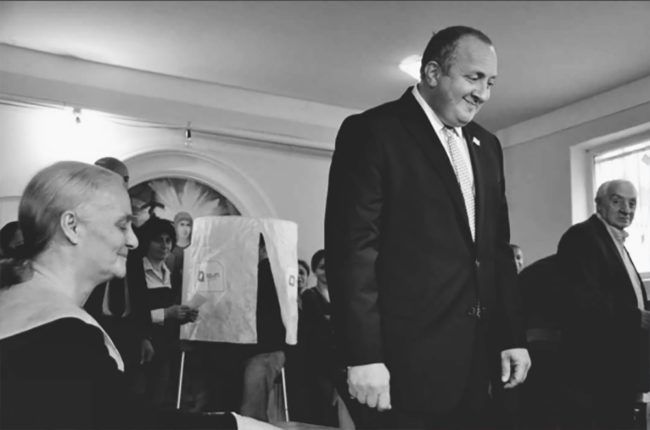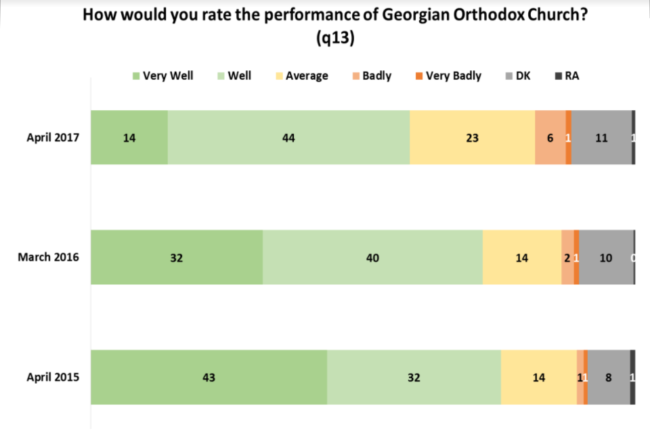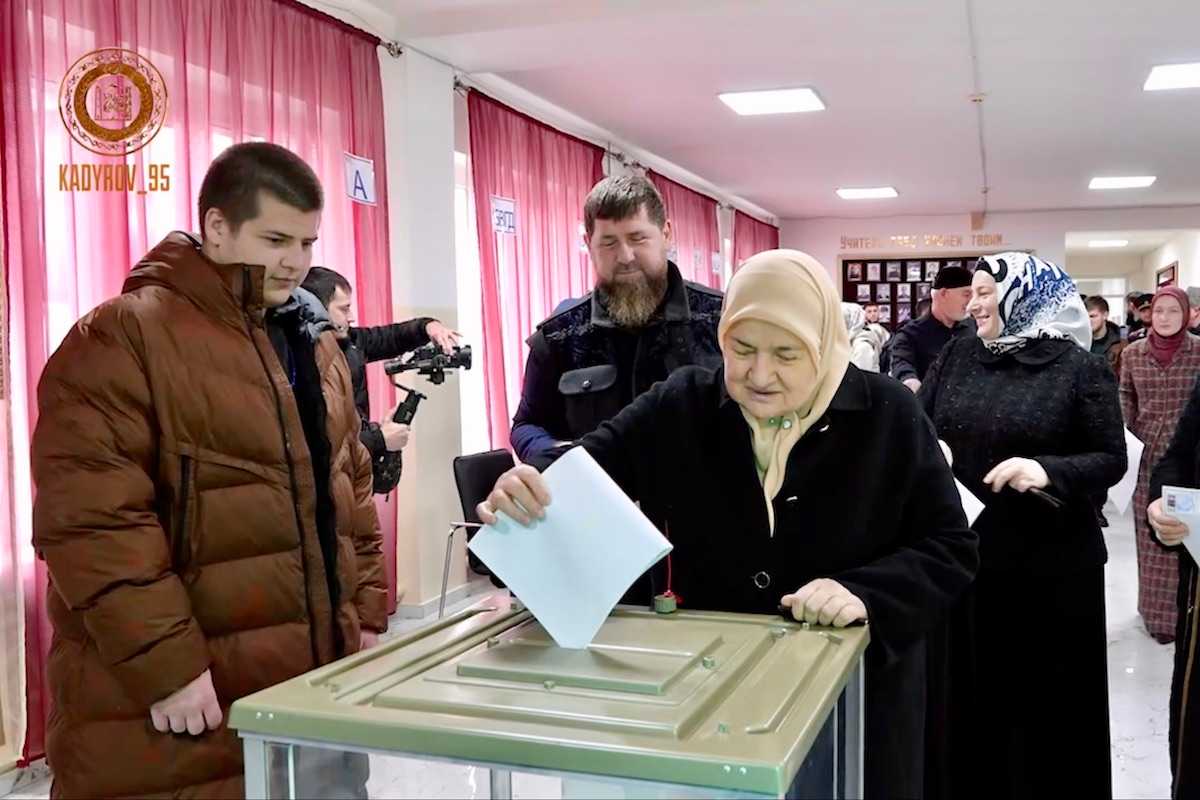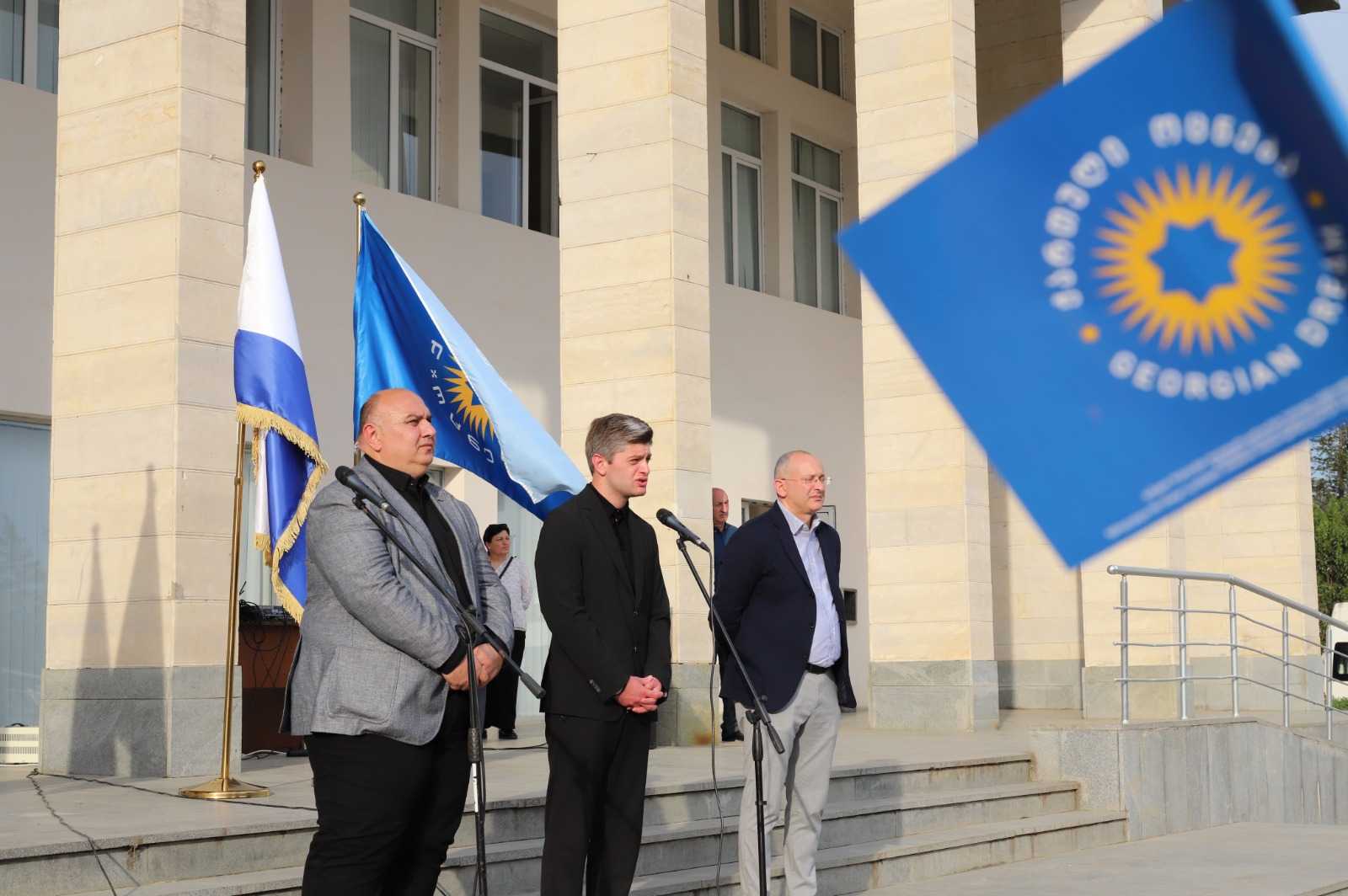Poll in Georgia shows opposition to indirect presidential appointment, falling confidence in Church


 A recent poll published by the Washington-based National Democratic Institute (NDI) and CRRC Georgia, a Caucasus-based think tank, shows growing disillusionment among Georgians in their government institutions and politicians. Although 69% of those polled continue to believe that the country will be better for future generations, opinion on the nation’s current direction remains largely uncertain.
A recent poll published by the Washington-based National Democratic Institute (NDI) and CRRC Georgia, a Caucasus-based think tank, shows growing disillusionment among Georgians in their government institutions and politicians. Although 69% of those polled continue to believe that the country will be better for future generations, opinion on the nation’s current direction remains largely uncertain.
The public is overwhelmingly opposed to changes in the way the president is elected, which are currently being proposed by the government. While on most other questions Georgians remain largely divided, in this instance, 84% of those polled said that the public should directly elect the president, as opposed to elected officials making the choice for them. This was true regardless of party affiliation, minority status, or location in the country (urban vs rural).
The ruling Georgian Dream party gained a constitutional majority in the 2016 parliamentary elections, giving them sweeping powers to change the way the country is run. They have since moved to restrict the powers of the presidency, including by changing the way they are elected, from direct elections to appointment by officials.
[Read on OC Media: Georgia’s new constitution keeps real change in check]
Falling ratings for the Orthodox Church

Trust in the Georgian Orthodox Church has dropped significantly in the last two years, according to the poll. While in April 2015, 75% of those polled believed that the church was performing well (43% ‘very well’ and 32% ‘well’) in the latest poll, conducted in April 2017, only 60% said the same (14% ‘very well’ and 46% ‘well’).
Georgian’s continue to support government funding of the Orthodox Church, with 57% supporting either the current level of funding, ₾25 million ($10 million) per year, or increased funding. However, 67% said that the Government should audit the spending of these funds, according to the poll.
The Orthodox Church is exempt from the being audited by the Revenue Service, which can only gain access to the Church’s finances with their permission.
Most of government funding to the Church comes from a 2014 agreement offering compensation to religious communities damaged during Soviet rule. Georgia’s Muslim community, which according to Georgia’s National Statistics Office is the country’s second most popular religion, making up roughly 10% of the population, receives only ₾1.1 million ($460,000) per year.









